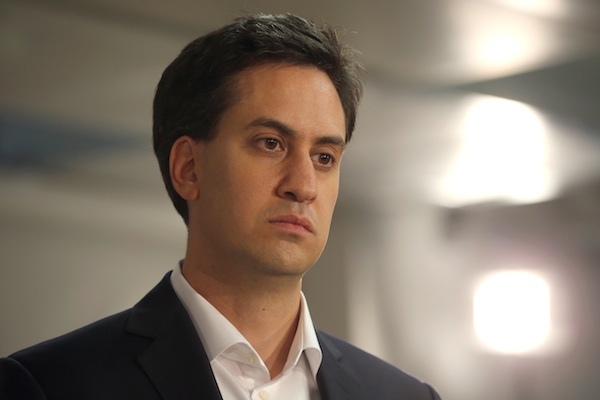There is now so much advice coming in for Ed Miliband that it needs classifying. There’s the Miliband-must-behave-like-this advice from all and sundry: he should talk more about the economy, talk less about the economy, shout a lot about things, talk more about policy, complain more about this and that and so on. The advice is so diverse that Miliband would end up looking like Francis Henshall in One Man, Two Guvnors if he tried to fulfil it all.
But there’s a second species of advice, which is on what big policy issue Miliband should back or oppose, partly out of principle and partly to make life very difficult for the Coalition. Today’s front pages carry two ‘pressure on Miliband stories’ on high-speed rail and an EU referendum, with the Financial Times reporting increasing momentum in the shadow cabinet for the Labour leader to ‘lance the EU boil’ by committing to a referendum, and Alistair Darling announcing in The Times that he now opposes HS2. Darling was on Today a short while ago, and said:
‘What has changed my mind is principally the cost, because it’s gone from £30 billion to £50 billion and recent reports suggest it might even be as high as £70 billion. My principal concern is that if you spend this money on this one railway line then we will not have the money for maintaining and upgrading existing lines, such as the East Coast line, the line to Bristol, the commuter lines and so on and my experience as transport secretary is if you do not spend money on upgrading and improving the track and the trains, then eventually things will start falling apart, as they did in the mid-1990s, and that would be catastrophic.’
This interview provides precisely the basis on which Ed Miliband could create a fiscally responsible position changing Labour’s stance on HS2, arguing that the money could be better spent elsewhere. But as James pointed out recently, this may sound sensible but is more difficult in practice given the Labour leader has appointed Lord Adonis to his growth review. Perhaps the best the Labour leader could plump for would be a delay of the project (additional time which could yet prove the project to be a white elephant left behind by advances in technology and transport).
But in the case of HS2 and his Europe policy, Miliband does not want to look bounced into making a short-term decision for politics’ sake. The poll lift that David Cameron experienced after his Europe speech earlier this year was hardly explosive, possibly because he too appeared to be trying to catch up with his party on the issue. Miliband will want to time either intervention carefully so that he doesn’t give the same impression, if at all possible.







Comments